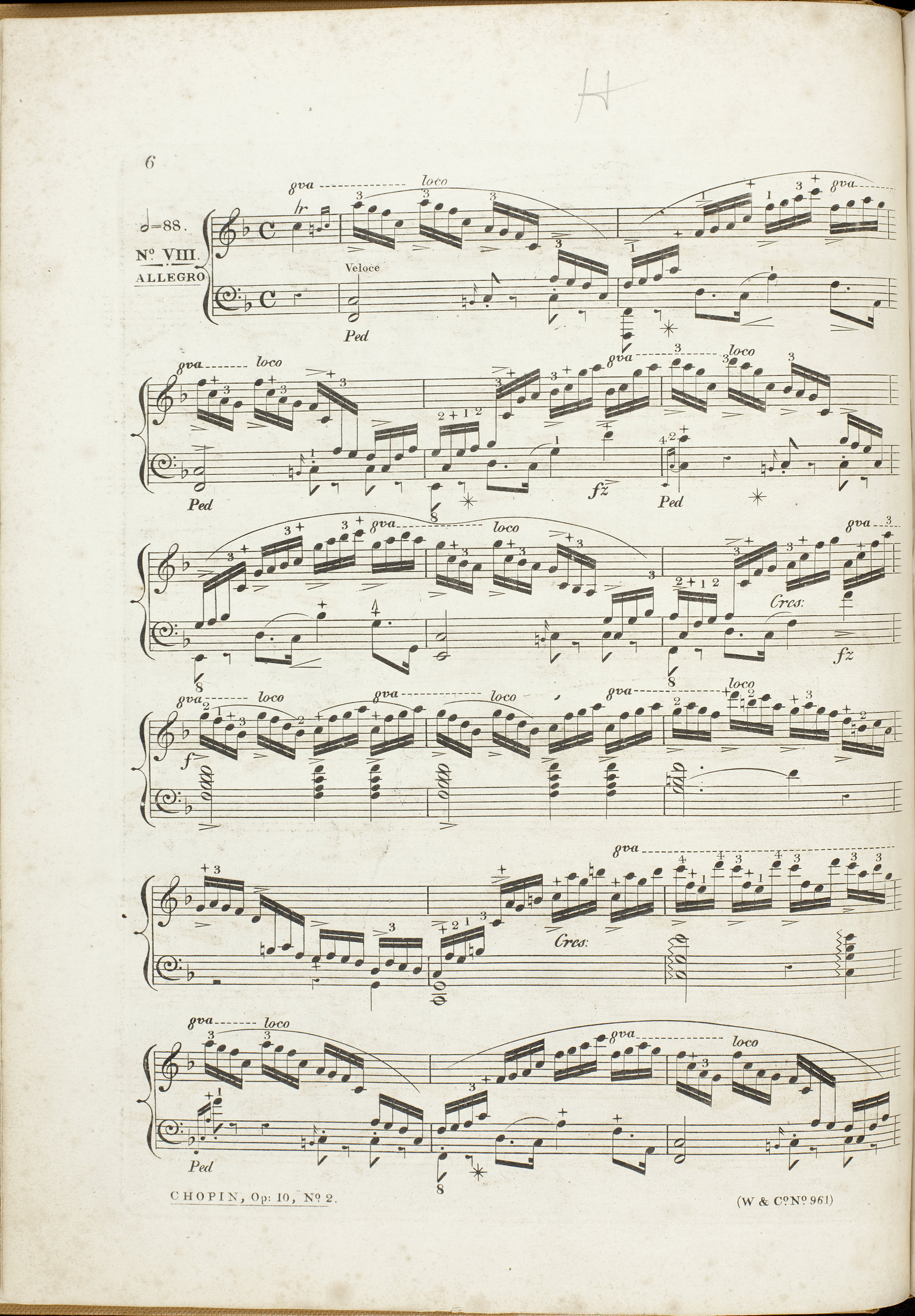



Page:
Source:
p. 2, b. 1-17
EE3 - Corrected impression of [EE2]
Prezentacja
Select

Three digits defining the fingering of the first passages of the Etude (based on one finger arrangement) were added by Chopin in a proofreading of FE (→GE,EE). In EE, Fontana added to them a number of next ones, developing the composer's hints, specifying, e.g., the places of crossing under of the 1st finger.
See b. 4-8
Compare the passage in the sources»
category imprint: Differences between sources
issues: EE revisions, Authentic corrections of FE
notation: Fingering
Missing markers on sources:
A, FE1, FE2, FED, FEJ, FES, EE3, EE4, GE1, GE2, GE3, GE4





